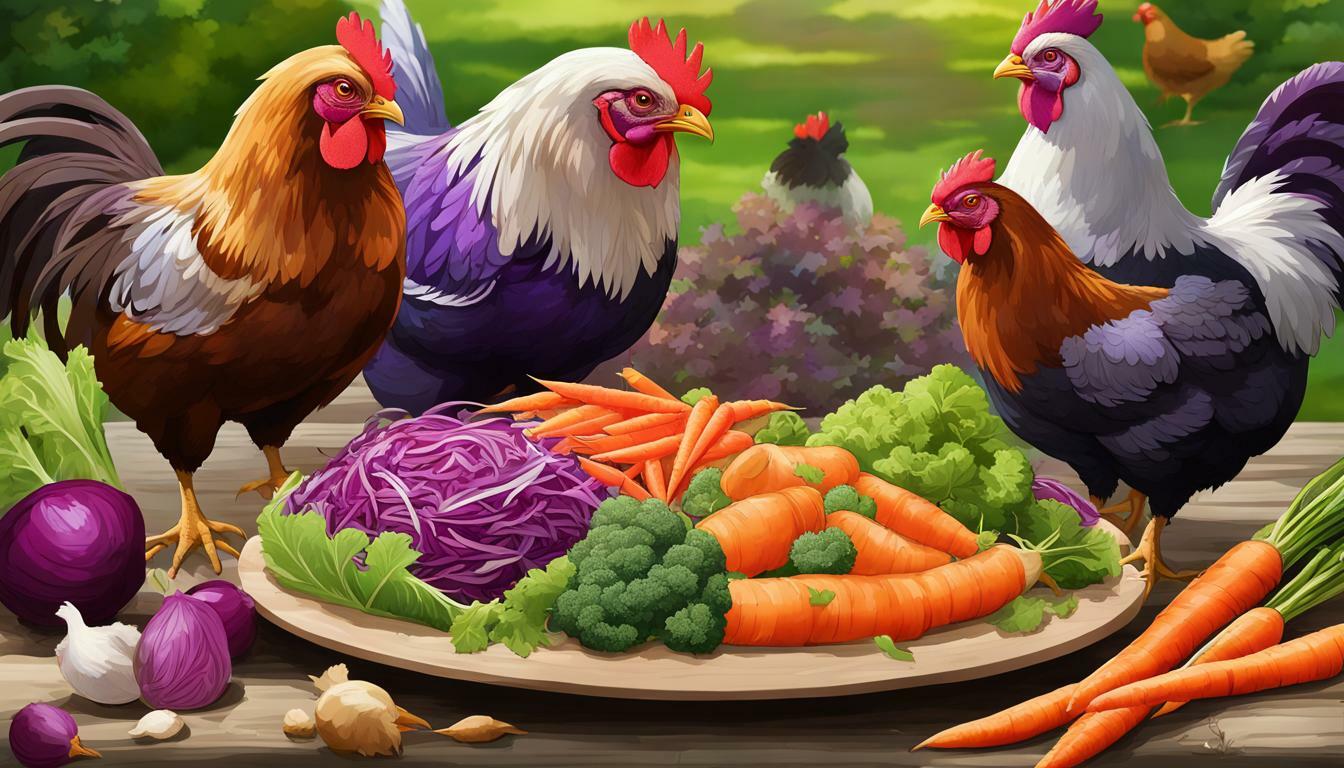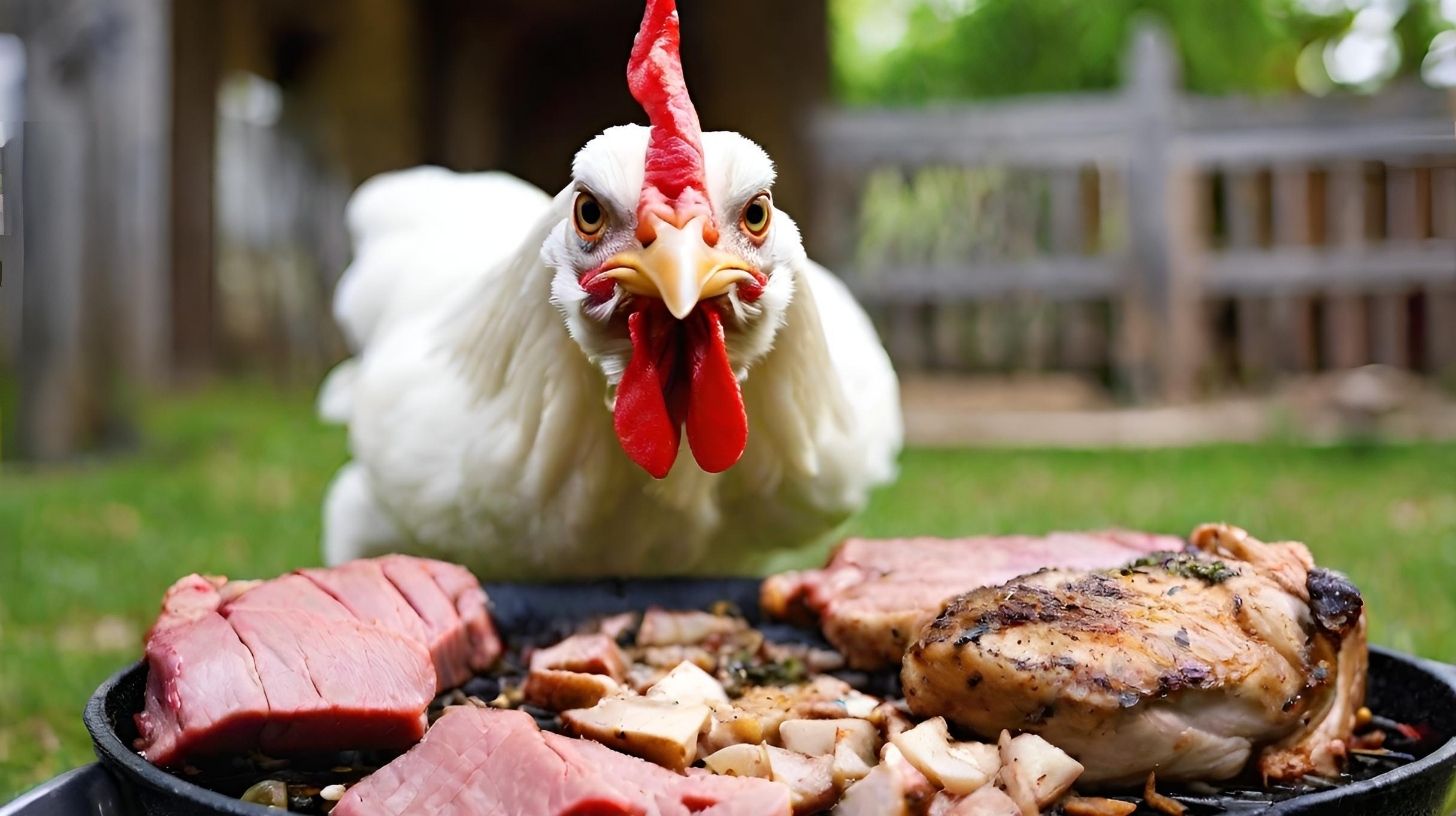Can Chickens Eat Cauliflower? The Ultimate Guide
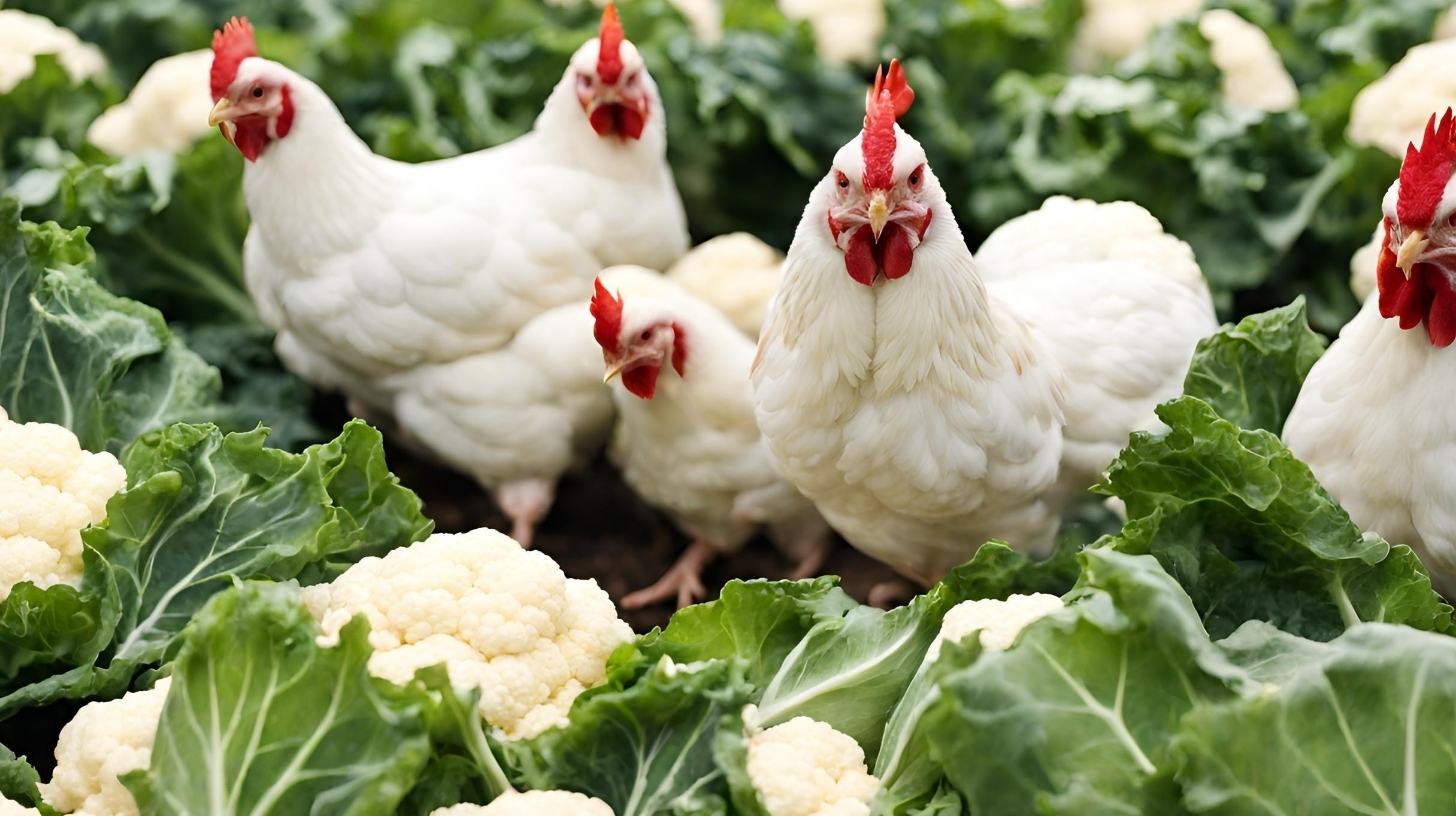
Table of content:
- Is Cauliflower Good for Chickens?
- Can Chickens Eat Raw Cauliflower?
- Can Chickens Eat Cauliflower Leaves?
- Is Cauliflower Toxic to Chickens?
- How Much Cauliflower Can Chickens Eat?
- Can Chickens Eat Cooked Cauliflower?
- Can Chickens Eat Cauliflower Rice?
- How to Feed Cauliflower to Chickens
- What Vegetables Can Chickens Not Eat?
- Frequently Asked Questions
- Conclusion
Cauliflower is a versatile and nutritious vegetable that offers many potential health benefits for chickens. As chicken owners, it’s crucial we understand what our feathered friends can and cannot eat to keep them healthy and happy. This comprehensive guide will explore everything you need to know about feeding cauliflower to chickens.
Key Takeaways:
- Cauliflower leaves, stems, florets and even cauliflower rice can be fed to chickens safely in moderation.
- Cauliflower provides vitamins, minerals and phytonutrients that support chicken health.
- Feed cauliflower raw or cooked but avoid feeding frequently to prevent potential digestion issues.
- Remove any sticks, ties or rubber bands before feeding to prevent choking hazards.
- Introduce new veggies like cauliflower slowly and watch for signs of intolerance.
- Cauliflower leaves make excellent free chicken treats straight from the garden.
Cauliflower belongs to the brassica family of vegetables which also includes broccoli, cabbage, kale and Brussels sprouts. All parts of the cauliflower plant can be fed to backyard chickens. Both the white curd (head) and green leafy parts offer nutritional value. However, cauliflower should always be fed sparingly as part of a balanced diet.
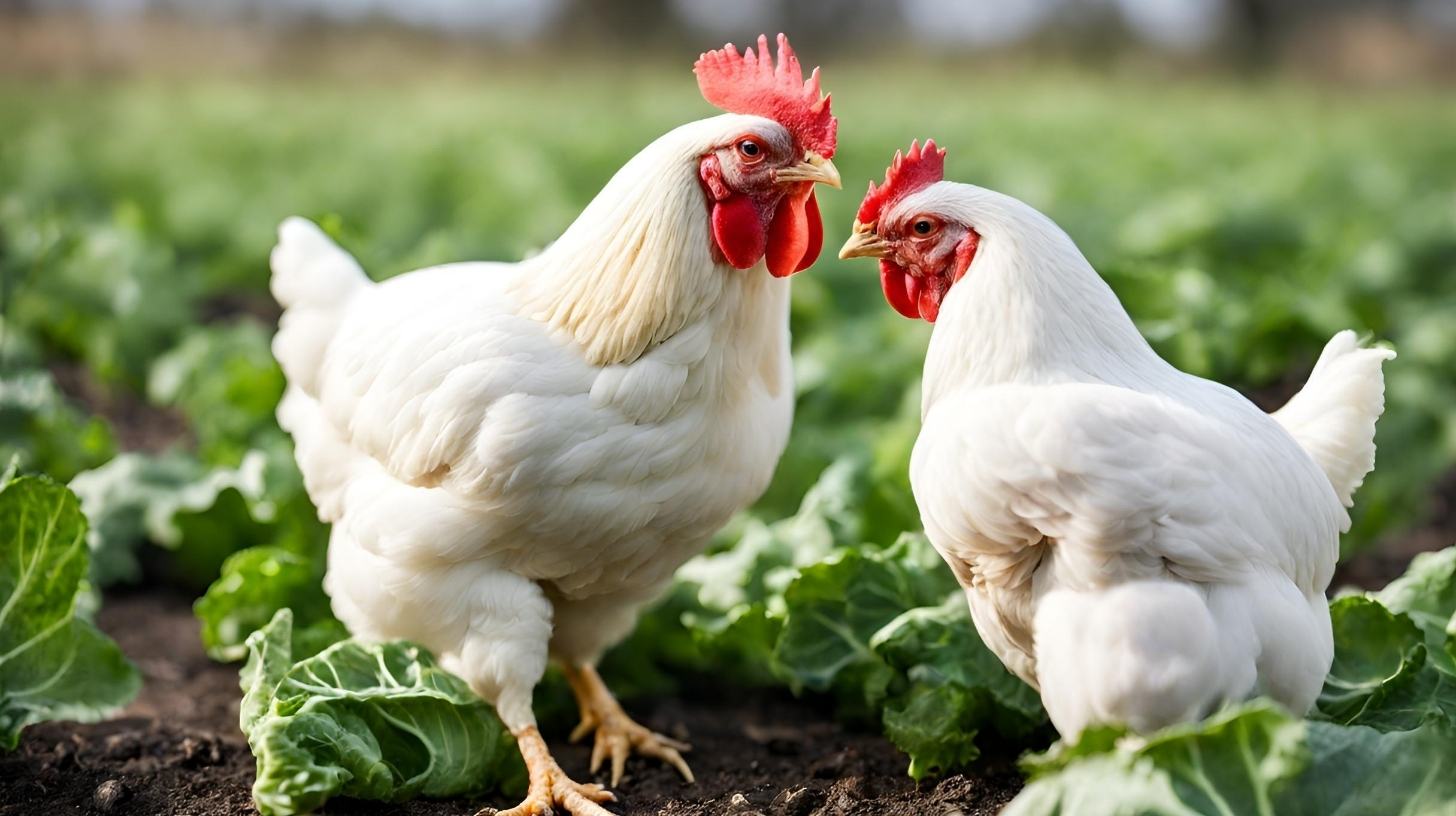 Is Cauliflower Good for Chickens?
Is Cauliflower Good for Chickens?
Cauliflower contains many vitamins, minerals and antioxidants that can support chicken health:
- Vitamin C – An essential vitamin for immune function and collagen formation. Helps combat stress and disease.
- Vitamin K – Supports bone health and blood clotting ability. Deficiency can lead to bone fractures.
- Fiber – Promotes digestion and gut health. May reduce risk of impacted crop.
- Glucosinolates – Antioxidants that may inhibit cancer cell growth and boost immunity.
- Choline – Important for fat transport and nerve function. Deficiency can cause fatty liver disease.
- Beta-carotene – An antioxidant that converts to vitamin A to support eye and skin health.
So in moderation, cauliflower makes a nutritious supplemental feed for backyard chickens. It provides valuable antioxidants and phytonutrients unavailable in commercial feed.
| Minerals in Cauliflower |
|---|
| Phosphorus |
| Potassium |
| Magnesium |
| Calcium |
Can Chickens Eat Raw Cauliflower?
Chickens can eat raw cauliflower florets, leaves, stems and even cauliflower rice without issue. In fact, raw cauliflower likely retains more nutrients versus cooked.
Just be sure to introduce raw cauliflower slowly at first to watch for signs of digestive upset. Chop any large florets into smaller bite-sized pieces for easier eating.
Can Chickens Eat Cauliflower Leaves?
The leafy green parts of cauliflower plants are completely edible for chickens. Both the smaller inner leaves and larger outer wrapper leaves offer nutritional value.
Cauliflower leaves are an excellent source of vitamin K which is needed for proper blood clotting. They also provide vitamin C, fiber and antioxidant compounds.
The leaves can be fed raw or cooked. Offer them freely from your homegrown cauliflower plants. Just avoid letting chickens graze directly in cauliflower vegetable gardens which could damage the developing heads.
Is Cauliflower Toxic to Chickens?
Cauliflower is not toxic to chickens when fed occasionally as part of a balanced diet. But there are some important feeding precautions:
- Avoid moldy or rotten cauliflower – Ingesting moldy veggies can cause neurological distress or toxicity. Always check for mold before feeding.
- Don’t overfeed – Too much raw cruciferous veggies could irritate the digestive tract. Feed cauliflower in moderation.
- Introduce new veggies slowly – Monitor for signs of intolerance like diarrhea, lethargy or refusal to eat.
- Remove rubber bands & ties – Bands around broccoli stalks pose a choking hazard. Remove before feeding.
As long as you take care to introduce new veggies slowly and feed cauliflower in moderation, it poses minimal risk to chickens.
How Much Cauliflower Can Chickens Eat?
Cauliflower should be limited to the occasional treat. Feed florets, leaves and stems no more than once or twice a week.
As a general rule, cruciferous veggies like cauliflower should make up no more than 10% of a chicken’s overall diet. Any more could lead to loose droppings or diarrhea from the extra fiber, especially if fed raw.
To put this in perspective, just a few florets or leaves twice a week is plenty for a small backyard flock. Think moderation when incorporating cauliflower.
| Vitamins in Cauliflower |
|---|
| Vitamin C |
| Vitamin K |
| Vitamin A (beta-carotene) |
| B Vitamins (thiamine, riboflavin, biotin) |
Can Chickens Eat Cooked Cauliflower?
Chickens can eat cooked cauliflower florets, rice and leaves without issue. In fact, cooking makes cauliflower softer and easier to digest.
Some easy cooking methods include:
- Steaming/boiling – Cook florets until fork tender then chop and mix into feed. Reserve the nutrient-rich broth to pour over feed.
- Sautéing – Fry chopped cauliflower in olive oil with herbs and garlic for added flavor.
- Roasting – Toss cauliflower florets and leaves in olive oil and roast at 400°F until browned and tender.
Just avoid heavily seasoning cauliflower with salty broths or spices. And let cooked cauliflower cool to room temperature before feeding.
Can Chickens Eat Cauliflower Rice?
Cauliflower rice makes a safe occasional treat for chickens. Just remember cauliflower rice is still raw cauliflower. So introduce slowly and limit intake to avoid potential digestion issues.
Pulse raw cauliflower florets in a food processor until they resemble rice grains. For added nutrition, use both the white and green parts of the cauliflower.
Then mix a spoonful or two of cauliflower rice into your flock’s feed as a supplement a couple times a week.
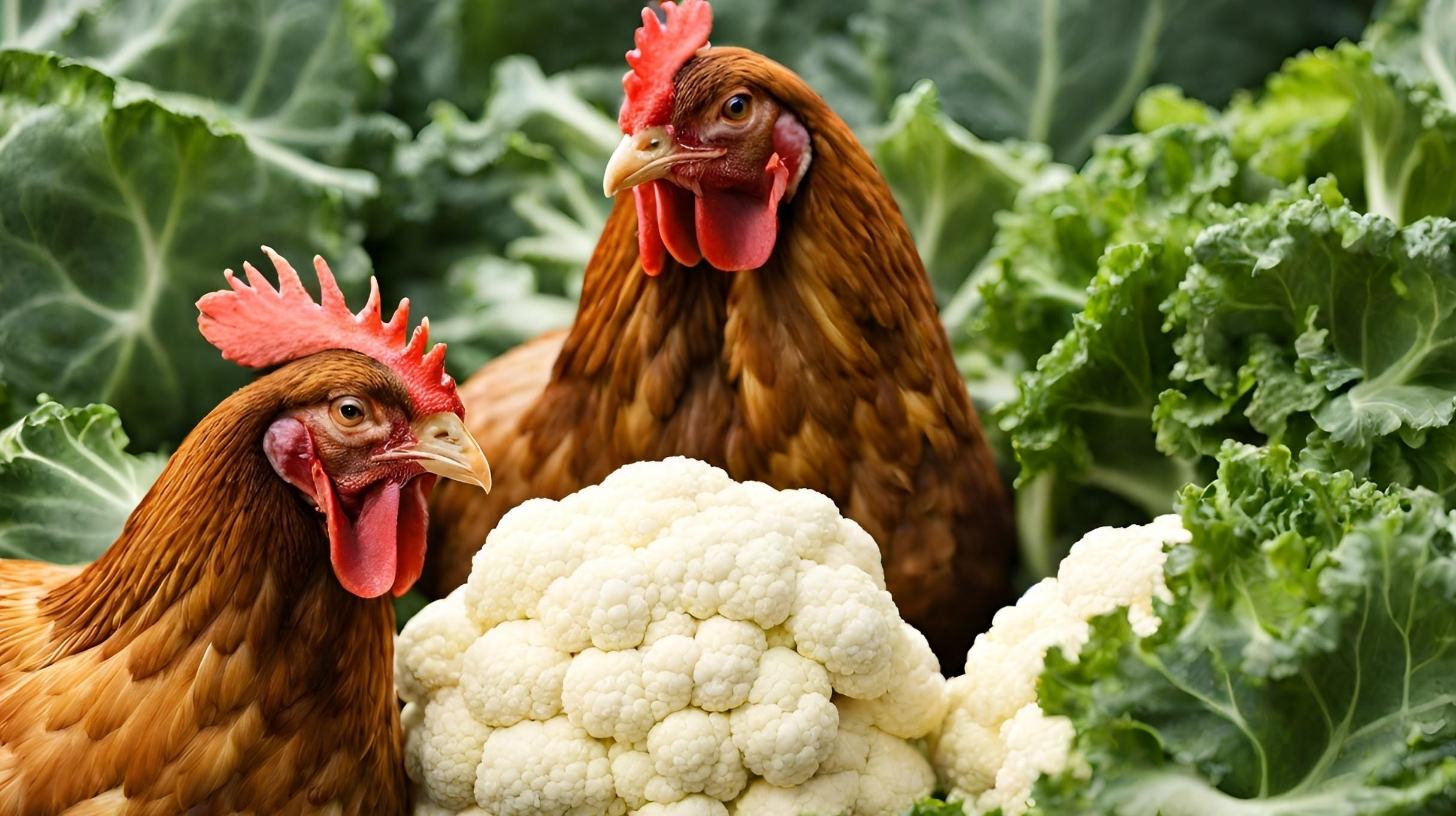 How to Feed Cauliflower to Chickens
How to Feed Cauliflower to Chickens
Follow these tips for safely feeding cauliflower to chickens:
- Start with small amounts like a few florets or leaves. Gradually increase frequency as you monitor for tolerance.
- Chop larger florets and stems into bite-sized pieces. Avoid whole chunks that are hard to swallow.
- Mix into feed, scatter in runs or hang leafy greens from roosts at chicken eye level.
- Remove any rubber bands, plastic ties or sticks before feeding to prevent choking.
- Offer both raw and cooked cauliflower for variety. Cook leaves, stems and rice to increase digestibility.
- Make sure chickens have constant access to grit to properly grind down raw veggies.
- Discard any uneaten cauliflower within a few hours to avoid spoilage.
What Vegetables Can Chickens Not Eat?
While most veggies are fine in moderation, here are some to completely avoid:
- Potatoes – Contain solanine, a toxic glycoalkaloid even when cooked. Avoid feeding all potato varieties.
- Dry beans or peas – Contain lectin phytohemagglutinin which is toxic to poultry. Only feed cooked well-soaked bean varieties.
- Onions/garlic – Can cause hemolytic anemia in large amounts. Use sparingly as a seasoning if at all.
- Mushrooms – Safety varies greatly by mushroom species. Avoid feeding to chickens due to toxicity risks.
When in doubt, lookup a vegetable on a reputable chicken keeping resource before feeding. Introduce new vegetables slowly while monitoring for tolerance.
Frequently Asked Questions
Can chickens have broccoli?
Yes, broccoli is safe for chickens and offers similar nutritional benefits to cauliflower. Introduce broccoli slowly and feed the florets, stems and leaves in moderation 1-2 times per week.
Are cauliflowers bad for chickens?
No, cauliflower is not inherently bad for chickens. Just don’t overfeed. Limit intake to a few times weekly to minimize risk of digestion issues. Check for mold and introduce new veggies slowly.
Can I feed my chickens cauliflower rice?
Definitely. Cauliflower rice provides nutrients from the entire veggie. Introduce slowly and limit to 1-2 times per week. Cook it to increase digestibility.
Do chickens like cauliflower?
It varies by chicken, but most enjoy cauliflower, especially the leafy parts. The fiber and phytonutrients are a healthy supplement to commercial feed. Watch for preferences and signs of intolerance when introducing new veggies.
Is cauliflower toxic to chickens?
No, cauliflower is not toxic when fed properly. But moldy cauliflower could cause toxicity, so always check for mold or spoilage before feeding. Limit treats like cauliflower to avoid digestive upset.
Conclusion
In conclusion, cauliflower can be a nutritious supplemental feed for backyard chickens. The leaves, stalks, florets and even cauliflower rice provide vitamins, minerals and antioxidants that support chicken health and immunity when fed occasionally. Stick to moderation, introduce new veggies slowly and always monitor for signs of intolerance. With a few precautions, cauliflower makes a healthy, natural treat straight from the garden for your flock to enjoy.
Welcome. I’m Adreena Shanum, the proud owner of this website, and I am incredibly passionate about animals, especially poultry. I founded adreenapets.com as a labor of love, stemming from my desire to share my knowledge and experiences with poultry enthusiasts worldwide.


